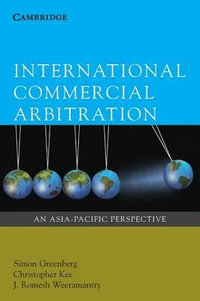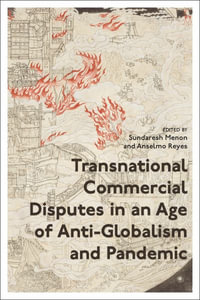The author of
Third Party Funding in International Arbitration challenges the structural inconsistencies of the current practices of arbitration funding by arguing that third party funding should be a forum of justice, rather than a forum of profit.
By looking at the premise, rather than the implication, the author presents the arcane areas of intersection between access to justice, as a foundational theory for third party funding, and the arbitration funding practice that lacks a unifying framework. The author introduces a new methodology with an alternative way of structuring third party funding to solve a set of practical problems generated by the risk of claim control by the funder.
This book will be of interest to third party funders, arbitrators, lawyers, arbitral institutions, academics, and law students.
Industry Reviews
'The past two decades have witnessed a sea change in the third-party funding of claims submitted to arbitration, both domestic and international. That evolution is reflected in Dr. Sweify's sophisticated understanding of the forces driving the expansion of and innovation in the third-party funding market. His well-organized and clearly written monograph not only identifies the myriad policy and legal issues involved in third-party funding across different jurisdictions, it also provides an insightful analysis of the financial, economic, and legal factors that underlie funders' risk assessment of claims and how that risk is managed. His book deserves a prominent place in the libraries of scholars, practitioners, financiers, after-the-event insurers, amongst other stakeholders.' -- Arif Hyder Ali, Dechert LLP. Washington, D.C., US
'Dr. Mohamed Sweify' s excellent monograph takes us beyond the original questions that first animated debates about third-party funding in international arbitration (TPAF). In this thoughtful and well-written work, Sweify identifies and addresses what might be called a "new generation" of questions about TPAF. In this work, he not only raises questions, but also offers meaningful, practical solutions. In this aim, he seeks to develop a new methodology to analyze the key issues, proposes alternative means for structuring TPAF, and makes a renewed call for intelligent regulation in the field. This book is crucial reading for arbitration practitioners, policymakers, and funders themselves, whether they are likely to agree or need to respond to the points the book raises.' -- Catherine Rogers, Universita Bocconi, Italy
'With the rise in third party funding in international arbitration it has become a subject with which every practitioner and arbitrator must become familiar. Professor Sweify has penned a remarkably cogent and comprehensive book that also flags the issues and offers new and interesting perspectives on solutions. It should be on every bookshelf.' -- Edna Sussman, Arbitrator, FCIArb; Distinguished Practitioner in Residence, Fordham Law School US
























